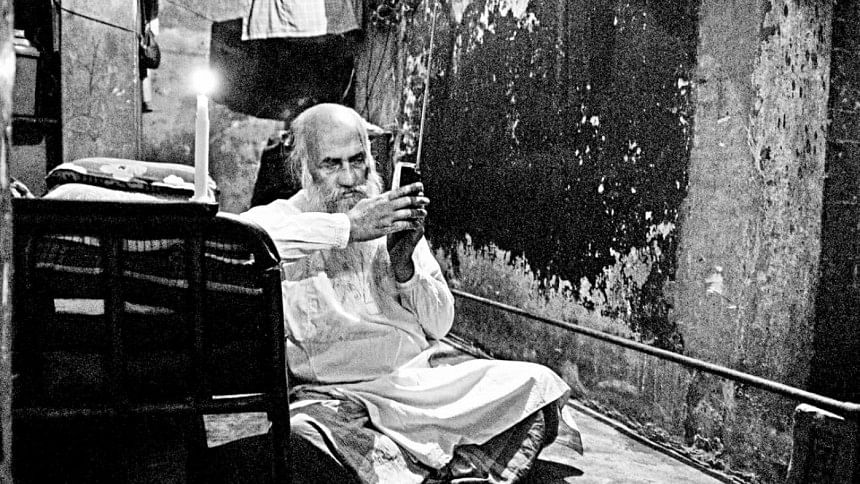Days of the radio

'Nostalgia' is probably the first word we associate with 'radio'. A 5-minute break from the hassles of Friday traffic, a request show and a song for your lover, or that catchy jingle simply refusing to erase itself from memory – these are what make radio, RADIO!
So tune in and stay tuned...the transmission begins now...

THE PAST…
The late 1930s was a troubled time for humanity. With war looming, Hitler and his Nazi rhetoric had traumatised the conscience of the world even before the news of genocide and ethnical cleansing of millions of Jews came into the forefront.
The second World War seemed inevitable and the conflict had already begun on various fronts. The geopolitical importance of the Indian Subcontinent was soon realised at all quarters and to counter the Axis propaganda different broadcasting stations were set up across India.
External Services were introduced at stations in the wake of German propaganda directed towards Afghanistan, Iran and the Arab nations, areas that were also deemed strategically important.
In the eastern side of the subcontinent, the 'Dhaka Dhwani Bistar Kendra' (Dhaka Audio Broadcasting Station) had operational beginnings on 16 December, 1939. Established in a rented house at Nazimuddin Road, (now Sheikh Borhanuddin College) the station was rather ill-equipped with the range of transmission being a meagre 20-25 miles by night and 30-45 miles by day.
The Japanese occupation of Burma in 1942 was a constant threat to India, and East Bengal soon witnessed an influx of allied military personnel. The radio station --'Air Dhaka' as it was later renamed– even with the short air time, 5p.m. to 10p.m., seemed a refreshing addition to the lives of the soldiers that were stationed in the eastern side and also for the civilians, distressed at the uncertainties that they had to confront.
After the end of hostilities of WWII, the station remained. In the days of pre-partition, performers from Calcutta (now Kolkata) would regularly feature in shows that were telecast in Dhaka. Many creative minds came and performed with great enthusiasm.
Kazi Nazrul Islam, the rebel poet, had composed a musical programme 'Purbani' for transmission, which was widely recognised as one of his seminal works. Other significant show aired was a live drama, Sarat Chandra's immortal classic, Devdas, which featured the acclaimed actors Promothesh Barua and Jamuna Devi.
Post-partition, radio once again became an essential tool for cultural propaganda. In an attempt to 'unify' the customs of both wings of Pakistan, Governor-General Mohammed Ali Jinnah before leaving Dhaka on his maiden visit, delivered a speech on radio reasserting his 'Urdu-only' policy.
Like all the speeches made in his historic visit, this radio broadcast instilled a further urge for cultural freedom amongst the Bengalis, which eventually amalgamated into the Language Movement of 1952.
Between 1947 and 1971, Bengalis as citizens of Pakistan, faced cultural domination in more ways than one. Religious bias was rampant and freedom of speech curtailed.
In the mid-sixties, songs and poems of Tagore were banned, a step which received vehement protest in East Pakistan. Every time the powers that be presented with so-called ideologies of 'blending in', Bengalis preferred the notion of 'standing out.'
As the Bengali identity was being rediscovered, artistes of East Pakistan promoted the pride and traditions of Bengal. Poetry sessions were telecast as were songs. Literary critiques were read out.
It can be said that as a tool of professing nationalistic and cultural identity, the Dhaka transmission of Radio Pakistan boldly upheld the rich traditions of this land.
During the Liberation War, radio played an important role in countering the propaganda of the West Pakistan and uniting the people of the erstwhile East.
On 7 March, all officers and staffs closed down the transmission and left the static in protest of the decision to not allow transmission of Bangabandhu's historic speech. Airing resumed in the following morning when the authorities gave in and put the speech on air.
After the midnight of 25 March, 1971 when the Pakistan armed forces started the brutal onslaught in East Pakistan, the brave broadcasters of the Chittagong station played a glorious role. After moving to several different locations in the days that followed, the Swadhin Bangla Betar Kendra finally settled in Kolkata, where the Mujibnagar government in exile was also stationed. The key person in organising the centre in its early stage was Belal Muhammad, a scriptwriter and artiste of Radio Pakistan. Several other liberation activists joined later.
Two of the most popular programmes of Swadhin Bangla Betar were 'Charampatra' and 'Jallader Darbar'.
Charampatra - a satirical composition, was planned by Abdul Mannan, a Member of National Assembly, and written in the typical Dhaka dialect by M R Akhter Mukul , who himself used to read it out. Narrated with scathing humour and a nationalist spirit, the broadcast helped keep the morale of the freedom fighters high.
After the end of the War, Bangladesh Betar played an essential role in keeping families, stranded in Pakistan and Bangladesh, together. For those who were caught in the political stalemate, the voice of Sarker Kabiruddin, who conducted the programme 'Shubhechhya Bani' came as words of comfort and assurance.
During the eight years of the autocratic regime media underwent a period of suffocation; a time when free speech was strangled, and restrictions and manipulation reigned over the media. Radio albeit in a different form, came towards keeping the people abreast of political developments.
Media activists expressed their quest for freedom through the External Services from the likes of the BBC and the VOA. Through an impartial platform, journalists were able to spread the news of an autocracy and helped in the re-birth of democracy in Bangladesh.

THE PRESENT…
Over the last one decade, the industry has undergone sweeping transformations. With new private FM stations opening up in the mid-2000s, Dhakaiites were introduced to a new form of infotainment. In the matter of just a decade that followed, a significant number of stations became operational, some having a network wide enough to cover all major cities.
RJs are some of the most popular celebrities of this generation. Their charismatic persona bridges the gap between musicians and other players in the entertainment industry - from actors, to models, to even sports commentators – and the masses.
FM radios are essentially a part and parcel of the experiences shared by this generation, now exposed to wider cultures and traditions of the entire world. It would not be wrong to assume that unlike the decades in the past radio currently does not reflect society; possibly it is only our outlook that has changed.
While most FM radio stations design their programmes to meet this growing demand, others have indeed ventured out into airing shows that address social issues, as well as providing enough content on entertainment. This not only acts as a variant in the schedule but also makes way for creating audience loyalty.
One can also argue that the need for 'entertainment' gets buried under the barrage of social correctness. The recent debate over the language controversy has received missed reactions. While a segment of the audience prefer to adhere to the pomp of effortless 'code switching' – mixing of languages, others listeners consider it a threat to the cultural values.
It can be argued that culture is in reality a fluid form, it changes with experiences shared by communities and it can be wrong to presume that one can still remain somehow trapped in the past and look forward at the same time.
Although our values are for us to retain, culture should have its own flow and one must embrace innovation, which can often be the demand of the time.
While most of the programmes are equally popular in Dhaka as they are in other parts of the country, in the farther regions the experience is still more personal, the chemistry, the radio experience somewhat more visible.
In a time when copyright issues and intellectual property rights are a major concern for musicians and other entertainers, radio can and does encourage staying loyal to the industry. Over the years, the stations have been true to their conviction of encouraging Bengali music, and musicians of Bangladesh.
With advent of mobile apps, most of these stations, despite transmitting in FM are now reaching a wider network of listeners. Bangladeshi expats can and do remain informed about the latest developments in the Dhaka scene. Another possible avenue that has been dawned by this IT revolution, is the introduction of foreign audiences to Bengali music.
Our traditions are rich and it rests with the current generation of musicians and entertainers to take it forward with their creativity and ingenuity.

THE FUTURE...
In the last few years, all of the world's popular information and broadcasting media have seen the initial forms of a grand transformation. With the availability of high-speed Internet, and of course the penetration of smartphones into the smallest of cell phone niches, this grand change has only hastened.
The modern television is already seeing a decrease, as more and more people are flocking towards online streaming and downloads rather than be shackled to a channel schedule. Newspapers are also losing to the benefit of instant news on the Internet.
It's only natural then, that radio may not command the same sort of popularity it held back in the 2000's. With most of our smartphones dusting the radio function under the rug, the average consumer is being pushed away from the standard towards more digital alternatives like online radio, podcasts and so on.
Thinking about all the advancements that have been made in the field of communication media recently, it is not difficult to understand the cold shoulder towards radio.
Communication mediums these days put a two-way connection between consumers and suppliers, putting the radio at a complete disadvantage.
In order for radio to survive, it needs to be adopted into the technology and mind-set of the 21st century. Fortunately, plenty of headway has already been made which can be integrated to radios to make them relevant in this day and age.
Do social media take away the comfort and unpredictability of radio? With some of the radio stations receiving millions of Likes on Facebook, it is understandable that radio can no longer do without the Internet. So the radio needs to do what it does best – adapt!
The final destination for the radio will possibly be the same as it is for the television; convergence with the speed, response, and interactivity of online digital content.
Gone will be the day of three different outlets for entertainment, and in its place will be one central platform, containing written articles accompanied by an audio and video piece.
This convergence will ensure a more complete information delivery than the current established separate media.
Over the last eight decades, radio has been our companion and surely it will not cease to exist in the near future.
A propaganda machinery in times of war, to a promoter of Bengali culture in erstwhile Pakistan, and the narrator of the patriotic fervour of '71 - the radio in Bangladesh has played a vital role in moulding the perception of the people.
It has fuelled cultural and political ideologies, reshaped the way we think and has been truthful to the present. The recent breed of private radio stations with waves signalled through the ether are now a testament to the changing scenario of our 21st century lives.
Controversy aside, one cannot undermine the important role radio still plays in our lives. What the future holds for the radio can only be argued on. Surely, radio is as important now, as it was ever before.
By Mannan Mashhur Zarif and Intisab Shahriyar
Special thanks to RJ Arunima, of Radio Foorti, for sharing her insight on radio and its influences over the decades.

 For all latest news, follow The Daily Star's Google News channel.
For all latest news, follow The Daily Star's Google News channel. 



Comments